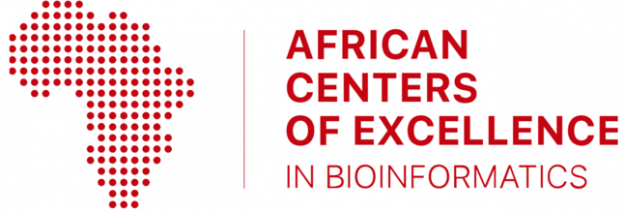In collaboration with Makerere University, Uganda and the MRC-University of Glasgow Centre for Virus Research, we were pleased to host the 2019 overseas course in Viral Bioinformatics and Genomics.
Summary
Viral diseases are a major public health burden across the world. In Africa, HIV, Ebola, Rabies, Zika and Rift Valley Fever are just some of the viral diseases that cause numerous deaths every year. Apart from health risks, emerging viral infections and outbreaks also pose an economic burden. The recent emergence of African Swine Fever Virus (ASFV) infection in Europe and Asia has huge economical implication on the world pig industry. However, ASFV is one of the animal viruses Africa has been battling for decades.
Advances in research technologies are enabling access to improved detection, surveillance and management of viral diseases. In recent years, next-generation sequencing (NGS) technologies have played an important role in the identification and classification of viruses, in the detection of drug resistance mutations and in the treatment and surveillance of viral diseases. Early identification of a virus and rapid analysis of its genome will aid towards better treatment and help in controlling the disease spread. Along with the rapid advances in the sequencing technologies, it is necessary to develop data management methods, computational analysis tools and human expertise to cope with the sequence deluge. The number of researchers able to interpret viral high throughput sequence data is currently limited, particularly in African countries.
The Viral Genomics and Bioinformatics course will provide participants with a working knowledge of viral genome sequence analysis and interpretation of genomics data generated from high-throughput sequencing. Topics will include the use of the command line to perform analysis of viral NGS data, quality control of sequences, reference and de-novo assemblies, pathogen detection from metagenomics data, annotation transfer from a reference genome and building phylogenetic trees. Participants, along with gaining bioinformatics knowledge, will have an opportunity to establish links and networks and develop future collaborative projects.
Target audience
The course is free to attend and open to applicants based in Africa engaged in relevant research/clinical activities The programme is aimed at researchers at various levels including Senior Research Assistants, PhD students, Postdoctoral Researchers, Laboratory Scientists and Clinical Scientists/Healthcare Professionals.
Learning outcomes
After completing this course, participants should be able to:
● Apply Unix/Linux command-line and write basic shell scripts for automating bioinformatics tasks
● Recognize the different file formats related to genome sequencing data
● Select an appropriate strategy for Quality Control of NGS data
● Construct reference assemblies using different software (e.g. BWA, Bowtie, Novoalign, Tanoti).
● Evaluate genome assemblies using statistics and visualisations
● Use multiple de-novo assemblers for viral genome reconstruction (e.g. SPAdes, ABYSS, IDBA-UD)
● Use metagenomics tools as such as Taxonomer and CLARK to detect and identify viral pathogens
● Select appropriate software tools to call variants from a reference assembly.
● Compute multiple sequence alignments
● Construct phylogenetic trees to understand viral evolution and transmission dynamics
● Build their own pipeline for analysis, interpretation and identification of viral pathogens.
● Include several aspects of this training in current research and future applications
Instructors and speakers
Sreenu Vattipally – MRC-University of Glasgow Centre for Virus Research, UK
Charles Masembe – Makerere University, Kampala, Uganda
Jean Baka Domelevo Entfellner – International Livestock Research Institute, Kenya
Joseph Hughes – MRC – University of Glasgow Centre for Virus Research, UK
Gerald Mboowa – Makerere University, Kampala Uganda
Grace Nabakooza – Makerere University, Kampala, Uganda
Richard Orton – MRC – University of Glasgow Centre for Virus Research, UK
Srikeerthana Kuchi – MRC-University of Glasgow Centre for Virus Research, UK
Everlyn Kamau – Virus Epidemiology and Control research group, KEMRI-Wellcome Trust, Kenya.






